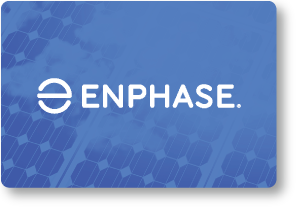The South African job market is on the rise.
Following a tumultuous pandemic period, which saw the hiring rate decrease by 35% in the latter half of 2020 and only somewhat stabilises in late 2021. Now, it’s a different story; the unemployment rate is not only decreasing, but job openings have increased by 18% comparing March 2022 to March 2020, and has further increased in 2022 by another 8.5%.
For South Africa’s booming renewable industry, to drive change, talented candidates are needed. However, without a resume that meets the standards, it will be difficult to enter South Africa’s job market.
In South Africa, you will be required to provide a Curriculum Vitae (CV). A CV is a detailed, straight-to-the-point document that outlines a candidate’s work experience, education, and a succinct profile of the job seeker. It’s also best practice to include a cover letter with your application as a summary of your career.
Hiring managers tend to read CVs more thoroughly while HR is more inclined to read cover letters. The difference is that they each look for different aspects that make someone suitable for a role. Managers are more inclined to review hard skills while HR is more inclined to look for soft skills.
What Your CV Needs
Make sure to separate each section of your CV with bold/underlined headings that show clearly the information being highlighted.
Candidate Information
In this section, the basic required information includes:
- Name
- Number
- City
Although the SA Department of Labour website indicates that additional information like your date and country of birth, gender, identity number, health status, and marital status is optional – this isn’t necessary in today’s job market and could be a hindrance to moving onto the next stage of the hiring process.
Depending on the seniority and the technical level of the role, less is not always more. Clients require comprehensive details about projects, project value and responsibilities, and certifications held over your career. Remember a CV knocks on the door and you as the candidate walk through once it opens to interview and get the job. The best advice is to make it clear as possible what you offer and what you have done over your career. The moral of the story is leave nothing to the imagination when it comes to your profile.
Language/s
South Africa is the Rainbow Nation. With eleven official languages and a host of unofficial languages and dialects, language skills are important. South Africa also has several global business ventures and ties, with China being South Africa’s largest trading partner, Mandarin is unsurprisingly one of the most highly sought-after language skills in the country and even more broadly, in Sub-Saharan Africa. So, be sure to indicate your proficiency level (and also specify writing and speaking level) for each language to give your potential employer a better understanding of your capabilities.
Educational History
Outline your tertiary, further qualifications/learning, here. If you received honours, or a high distinction, be sure to mention it. Professional registrations and industry courses are also becoming very crucial to securing senior technical roles across renewables, so ensure that you have a separate list in your CV that outlines these.
Current Job or Your Most Relevant Job
Typically, work experience is presented in a reverse chronological format. Your latest experience should be first and expanded on the most. You should along with the rest of your work experience, highlight your responsibilities and emphasise the most important achievements. If your latest position is not as relevant, it’s okay to use an older position. Don’t be shy to include any contract or shorts term projects as well. In some cases, it shows flexibility and adaptability which are traits clients look for especially in a project-driven renewables environment.
Work Experience
You should maintain the reverse chronological format. For this section, you should only include relevant jobs; however, if you’re a graduate or relatively junior (say, 3 years in the industry, give or take), you can include work experience and/or volunteering that is not within the industry. In that case, highlight transferable experience. For example, experience with computer programs, and managing a team. Make sure to present your experience with numerical achievements, for example;
- Internship at renewables industry company doing design and technical drawing for 1 year.
- Secured a 100 MW CSP Solar plant in Ghana ahead of 10 other companies in 2015.
These are not only easy to read, but they provide a succinct and impressive aspect of your work experience.
Skills (Hard and Soft)
For your skills, you should touch on both hard and soft skills. Hard skills are regarding your ability, and soft skills are how you perform or conduct yourself. Both are important and for balance, make sure to have the same amount for each; for example, if you have three hard skills, you should have three soft skills, and so on. It should go without saying, the skills should be relevant to the job you’re applying for. Be sure to scan the position listing and highlight skills that are mentioned that you have.
Awards
Any relevant awards received during your professional and educational career should be highlighted in their own section. If you have an online course or any qualifications that have an authenticity link, you can hyperlink them in the CV for easy access (if sent electronically). For senior engineers and managers, it’s imperative to include key project achievements, for example completing a 50MW solar plant valued at 10 million USD in Mozambique. It paints a clear vision of the magnitude of projects you can and have handled over your career.
References
In the initial round, you do not have to include references. You can instead indicate that they will be available upon request. Be sure to check with your references to see if it’s okay to use their details.
Cover Letter
Cover letters are another aspect of job applications. While the CV is a detailed explanation of your qualifications, a cover letter is a way to express your interest in the position. Cover letters are where your personality, specific skills, and experience can benefit the job you’re applying for. They also provide an insight into your working style, team alignment, and your understanding of the company.
While the arguments for and against cover letters are a hot topic, the importance of them can’t be denied. A study found that 83% of hiring decision-makers believed that cover letters were influential in making candidate choices. In some cases, the cover letter helped a CV that did not meet all the requirements for the role. Given how the renewable energy industry is fuelled by passion, it’s recommended that you demonstrate it through a cover letter.
If an application doesn’t explicitly say no cover letters, you should include one.
Your Cover Letter: Five Things To Remember
1. Use keywords from the job application
This is especially important if your application goes through an AI scan first. The computer will immediately flag any keywords that match; this will increase your chances of a hiring decision maker seeing it.
2. Expand upon your skills
Referencing some of the skills in your CV, you should back them up with an example during your working career. This further supports your skills and gives the reviewer an idea of your competency.
3. Keep it to one page
The cover letter should be kept to one page and ideally 250 – 400 words. Managers receive many applications for a position and they won’t have time to read long-form documents. Keeping this limit in mind will ensure that only the most relevant things are said. Going too long could see you waffling and have the reader lose interest.
4. Use dot points where necessary
Dot points break up information (just like we’re doing now) and make it easier for the reader to digest what’s being presented to them. White spaces and breaks are your friends – no one wants to read a wall of text.
5. Show off your personality
While hiring can seem very robotic and analytical, at the end of the day, companies are hiring people. A hiring manager wants to know who you are and understand how you’ll fit within the company. So, be sure to show yourself off!
A CV and cover letter don’t have to be complicated. Just remember to keep it simple and straight-to-the-point. Also a tip! Even if you are not job searching now, make sure to note achievements and other career milestones in your current job. These will be great to add to your resume down the track. You should update your resume regularly so that you’re always prepared.












